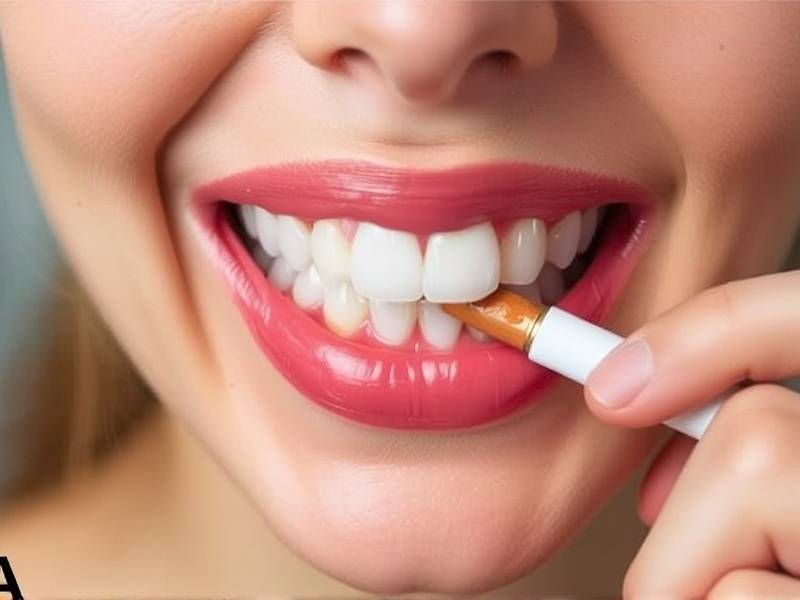Will My Teeth Get Whiter When I Quit Smoking?
The Impact of Quitting Smoking on Tooth Whitening: A Comprehensive Guide
Introduction: One of the most noticeable changes people experience when they quit smoking is the improvement in their overall health. However, many smokers are also curious about the impact of quitting on their oral health, particularly tooth whitening. In this article, we will explore whether quitting smoking can lead to whiter teeth and provide insights into maintaining a healthy smile.
Section 1: The Role of Smoking in Tooth Discoloration Smoking is a leading cause of tooth discoloration due to the harmful chemicals present in tobacco products. Tar and nicotine are two primary substances responsible for staining teeth over time. When you quit smoking, you eliminate these harmful chemicals from your body, which can lead to a gradual whitening of your teeth.

Section 2: The Gradual Process of Tooth Whitening It's important to note that tooth whitening is not an immediate process when you quit smoking. The discoloration caused by smoking can take several weeks or even months to fade as your body eliminates the harmful substances. During this time, it's crucial to maintain good oral hygiene practices, such as brushing your teeth at least twice a day with fluoride toothpaste and using a toothbrush with soft bristles.
Section 3: Enhancing Tooth Whitening with Professional Treatments While quitting smoking alone can lead to whiter teeth over time, professional treatments can accelerate the process. Teeth whitening treatments like bleaching or laser therapy can help remove stubborn stains and restore your smile's natural brightness. It's recommended to consult with a dental professional who can provide personalized advice and treatment options based on your specific needs.

Section 4: Maintaining Your Whitened Smile Once your teeth have begun to whiten after quitting smoking, it's essential to maintain them by adopting a few lifestyle changes:
- Avoid stain-causing foods and drinks such as coffee, tea, red wine, and dark-colored sauces.
- Continue practicing good oral hygiene habits like regular brushing and flossing.
- Consider using whitening toothpaste or mouthwash for additional stain prevention.
- Schedule regular dental check-ups for professional cleanings and maintenance.
Conclusion: Quitting smoking not only improves your overall health but also contributes to a brighter smile. While tooth whitening may not happen overnight after quitting, it's an attainable goal with patience and proper oral care. By incorporating healthy habits into your lifestyle and seeking professional assistance when needed, you can enjoy the benefits of whiter teeth while maintaining good oral health for years to come.
